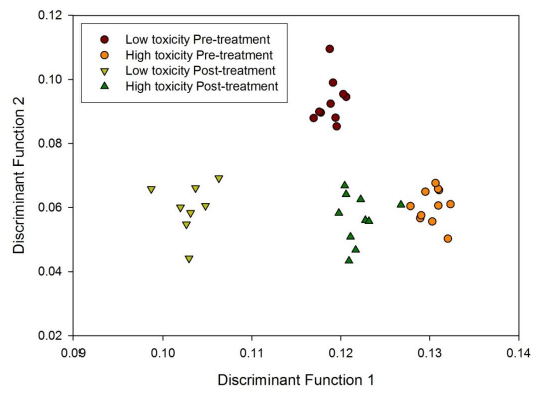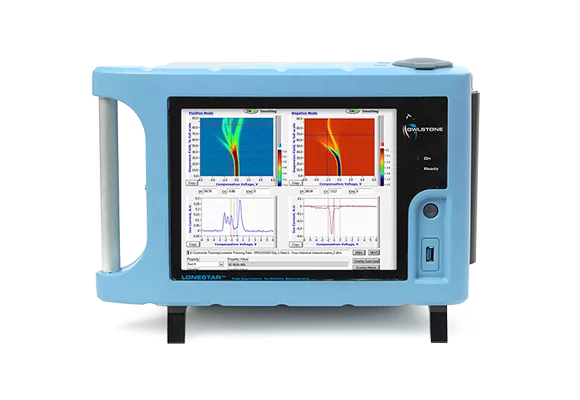A precision medicine approach for patients undergoing pelvic radiotherapy
Pelvic radiotherapy is a treatment that can result in patients suffering from gastrointestinal toxicity from so called “pelvic radiation disease”
| Publication information: J. A. Covington et al. The Detection of Patients at Risk of Gastrointestinal Toxicity during Pelvic Radiotherapy by Electronic Nose and FAIMS: A Pilot Study, Sensors 2012, 12, 13002-13018; DOI: 10.3390/s121013002Disease Area: Pelvic Radiation DiseaseApplication: Precision medicine – therapy selectionSample medium: FecesProducts: Lonestar® VOC AnalyzerAnalysis approach: FAIMS & E-nose Summary:
|
The detection of certain gas phase bio-markers from human biological output is increasingly being used to identify particular illnesses. Using Owlstone Medical’s FAIMS technology, the Lonestar® VOC analyzer offers a fast and sensitive way to analyse complex biological samples. A recent journal article details the use of Lonestar to detect changes in bacterial metabolites from stool samples from patients undergoing pelvic radiotherapy, a treatment that can result in patients suffering from gastrointestinal toxicity from so called “pelvic radiation disease”.
The researchers from Warwick University performed Fisher Discriminant Analysis on the chemical fingerprints collected using Lonestar. The figure shows the clear discrimination that was possible between patient samples before and after radiotherapy, as well as between patients that exhibited high and low gastrointestinal toxicity. The difference in the samples is thought to be the result of the effect of radiotherapy on the patient’s microbial gut flora, which results in a change in the bacterial metabolites detected from the sampled faecal matter. The results show that the two groups of patients are likely to have started with substantially different indigenous bacterial micro-flora. Lonestar could therefore be used to predict which patients are more at risk from pelvic radiation disease before the start of radiotherapy. This potentially allows for an alternative treatment pathway to be found, minimising the morbidity associated with this approach.

Fisher Discriminant Analysis of FAIMS chemical fingerprints showing clear discriminations between patients before and after radiotherapy and those with high and low gastrointestinal toxicity

